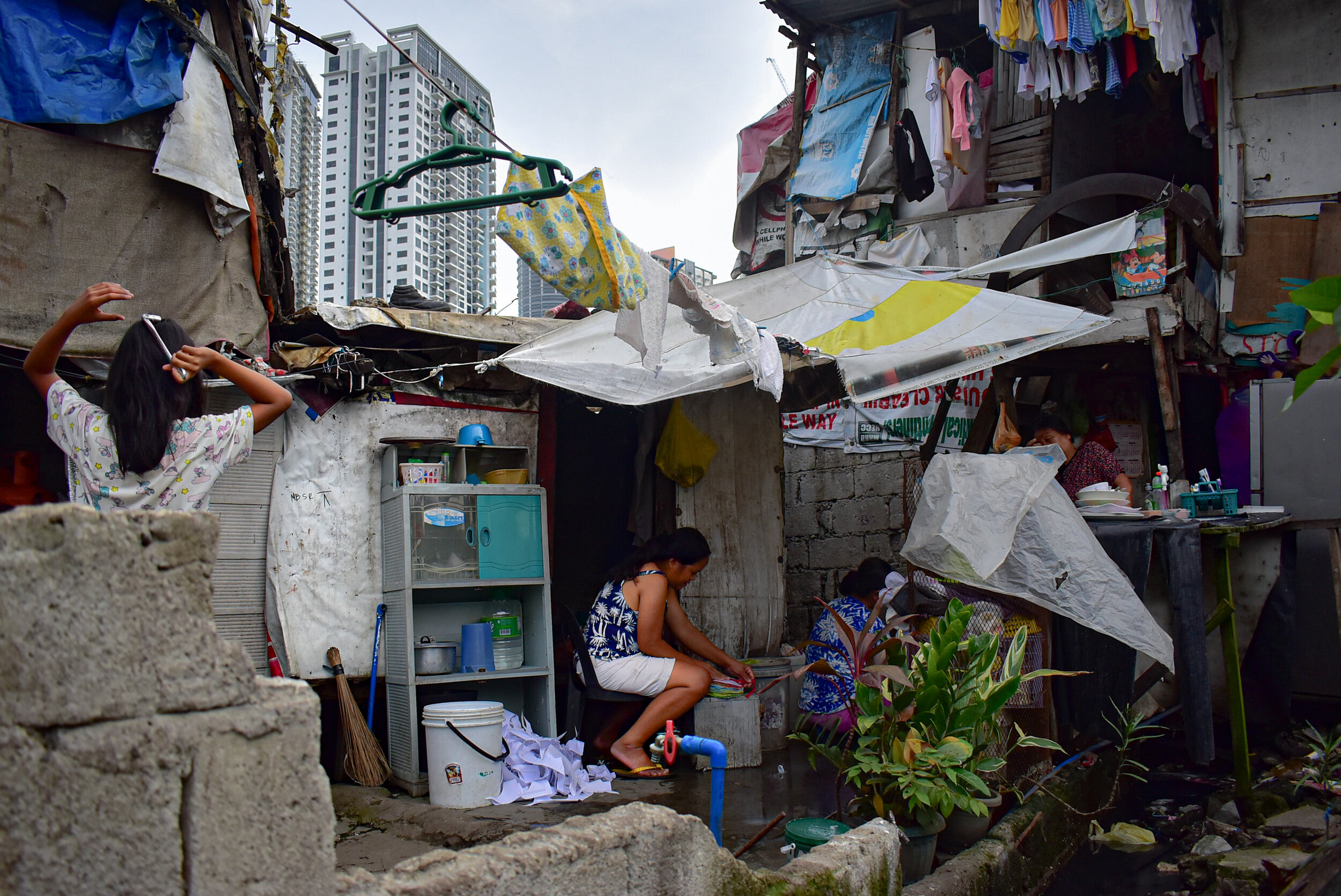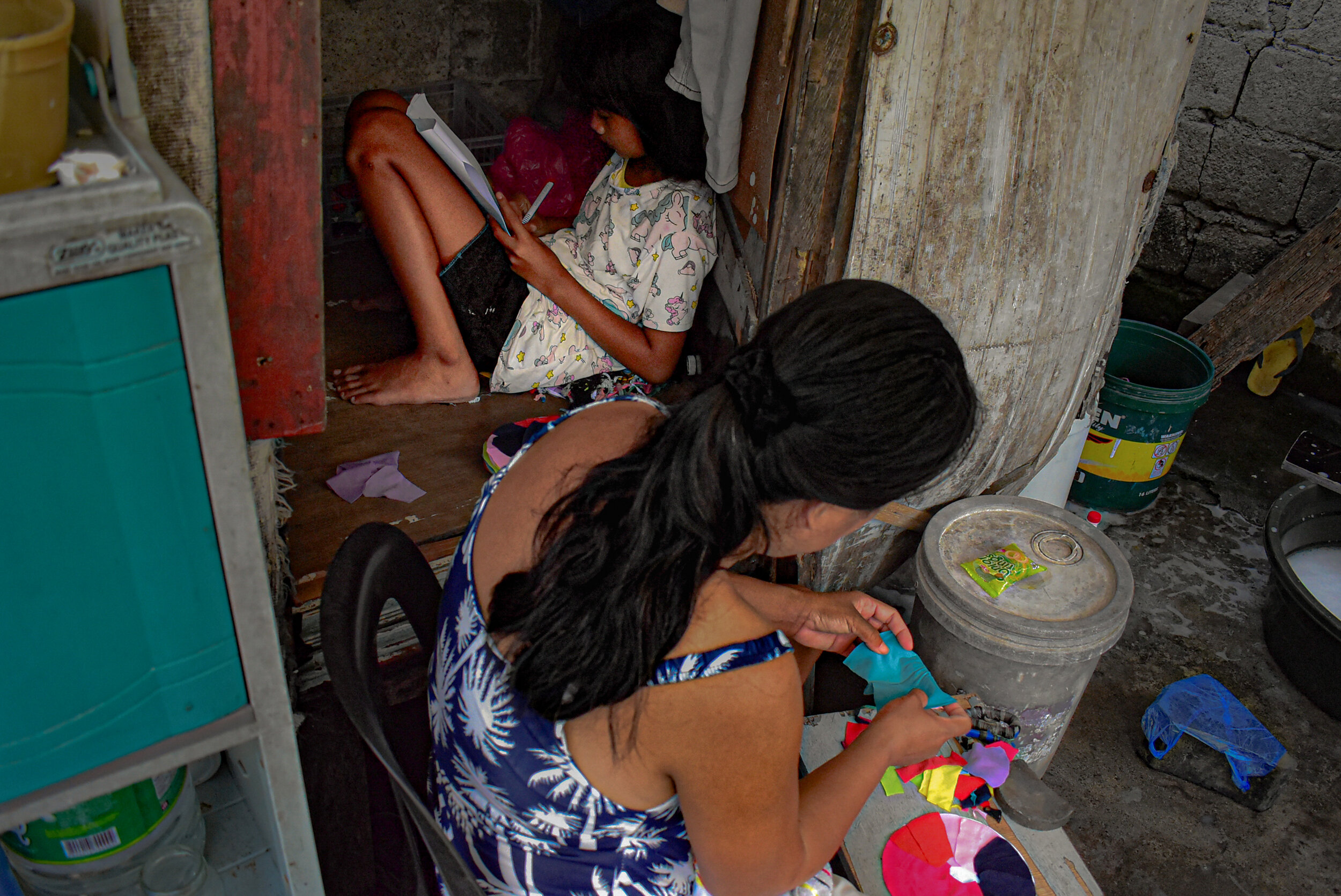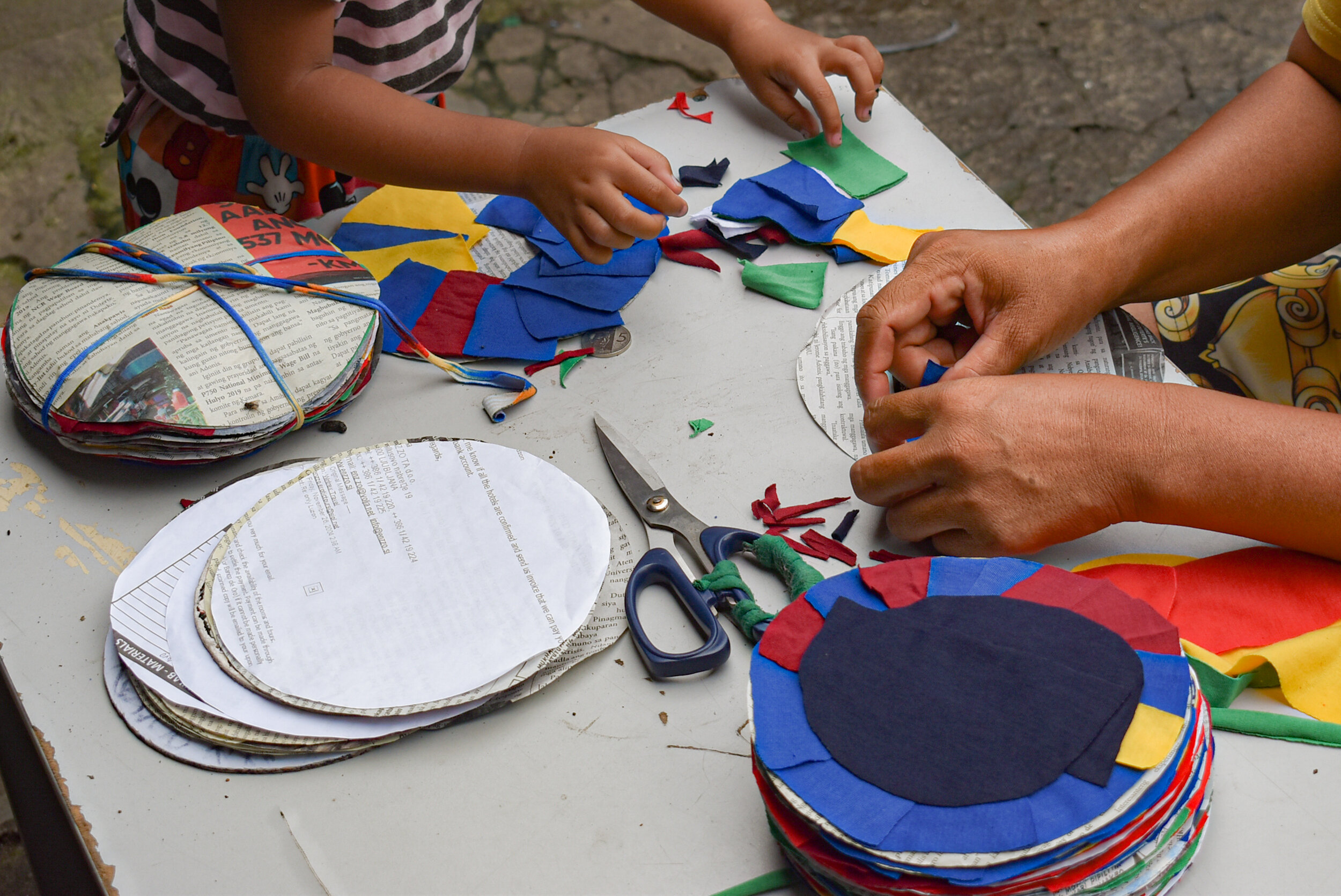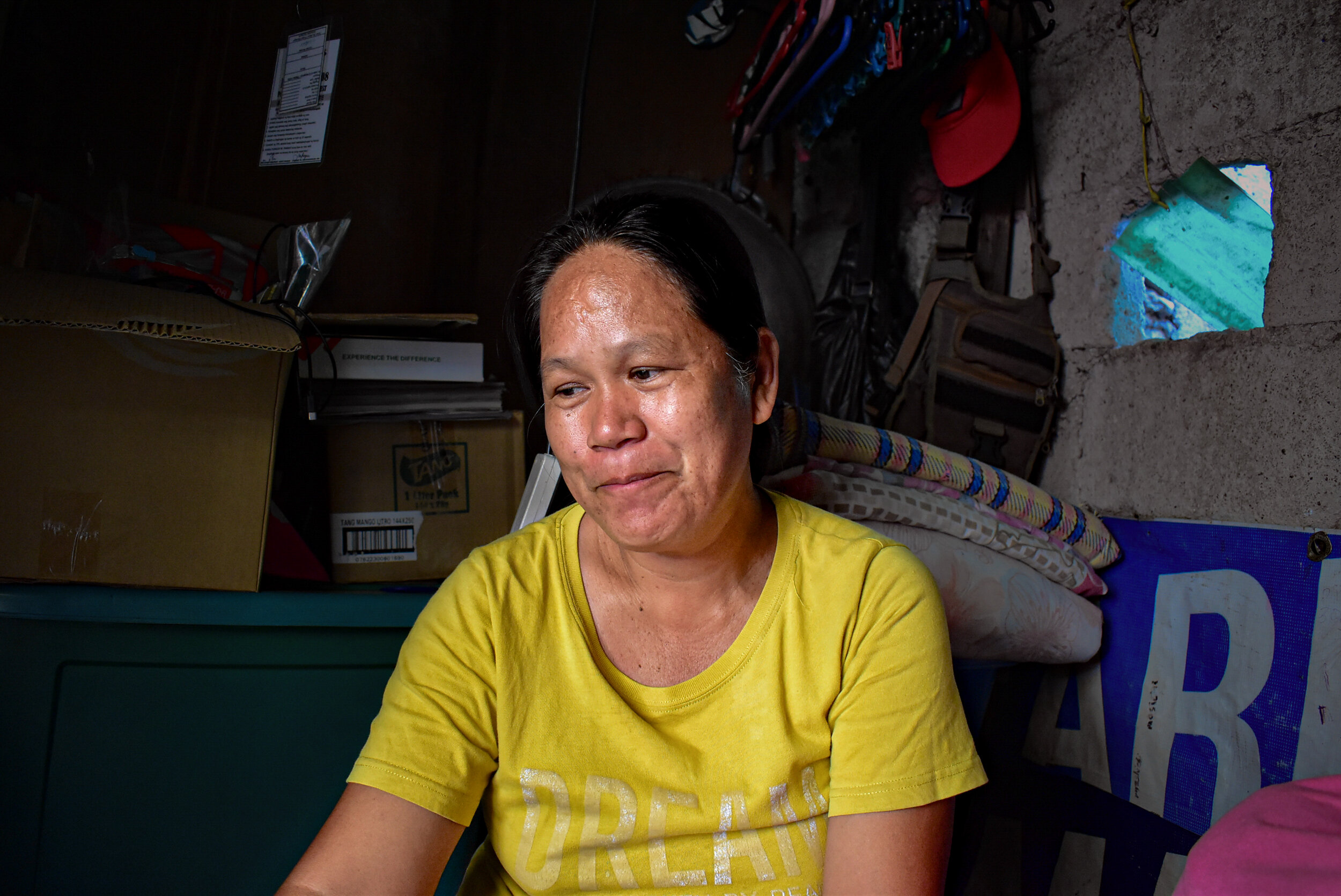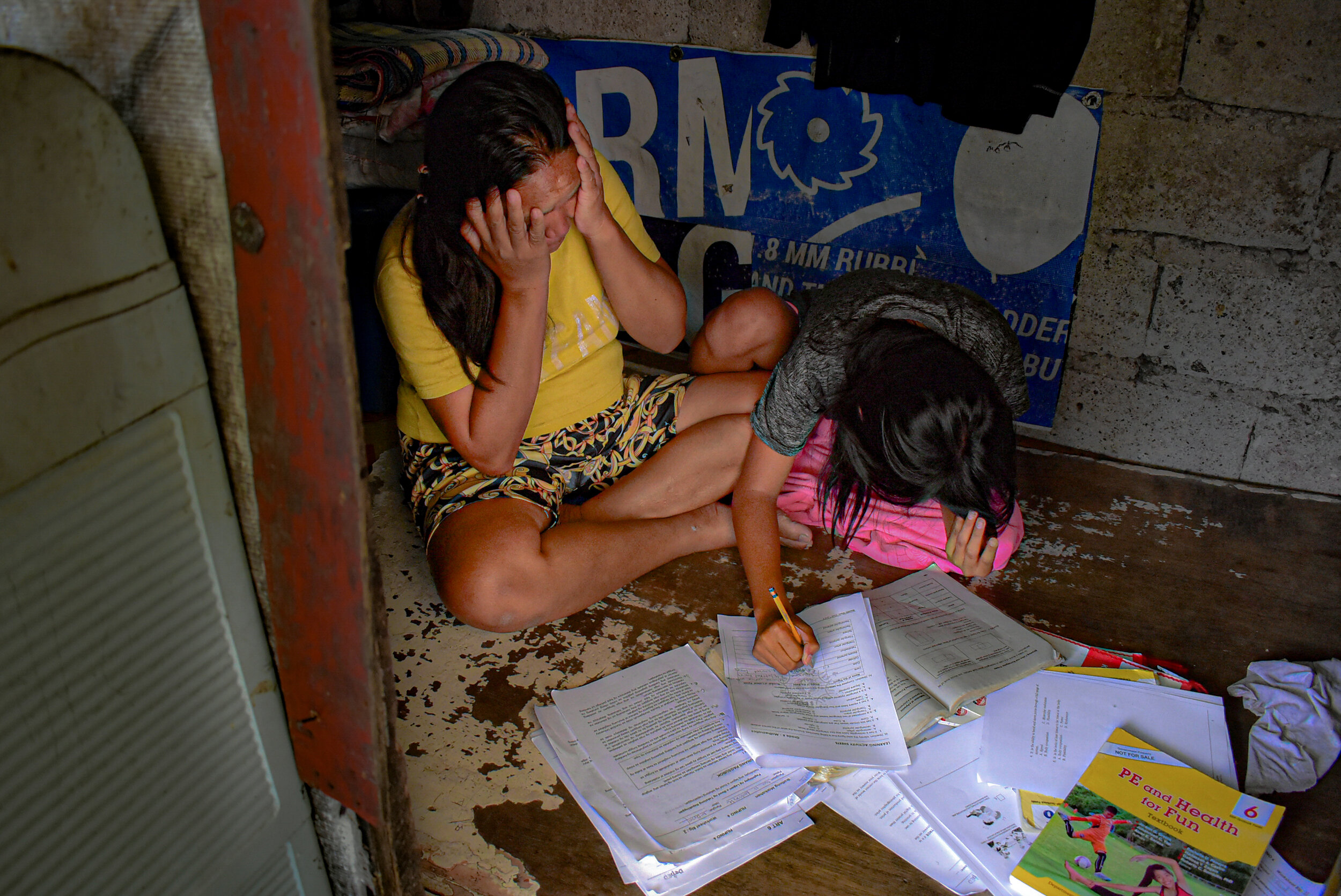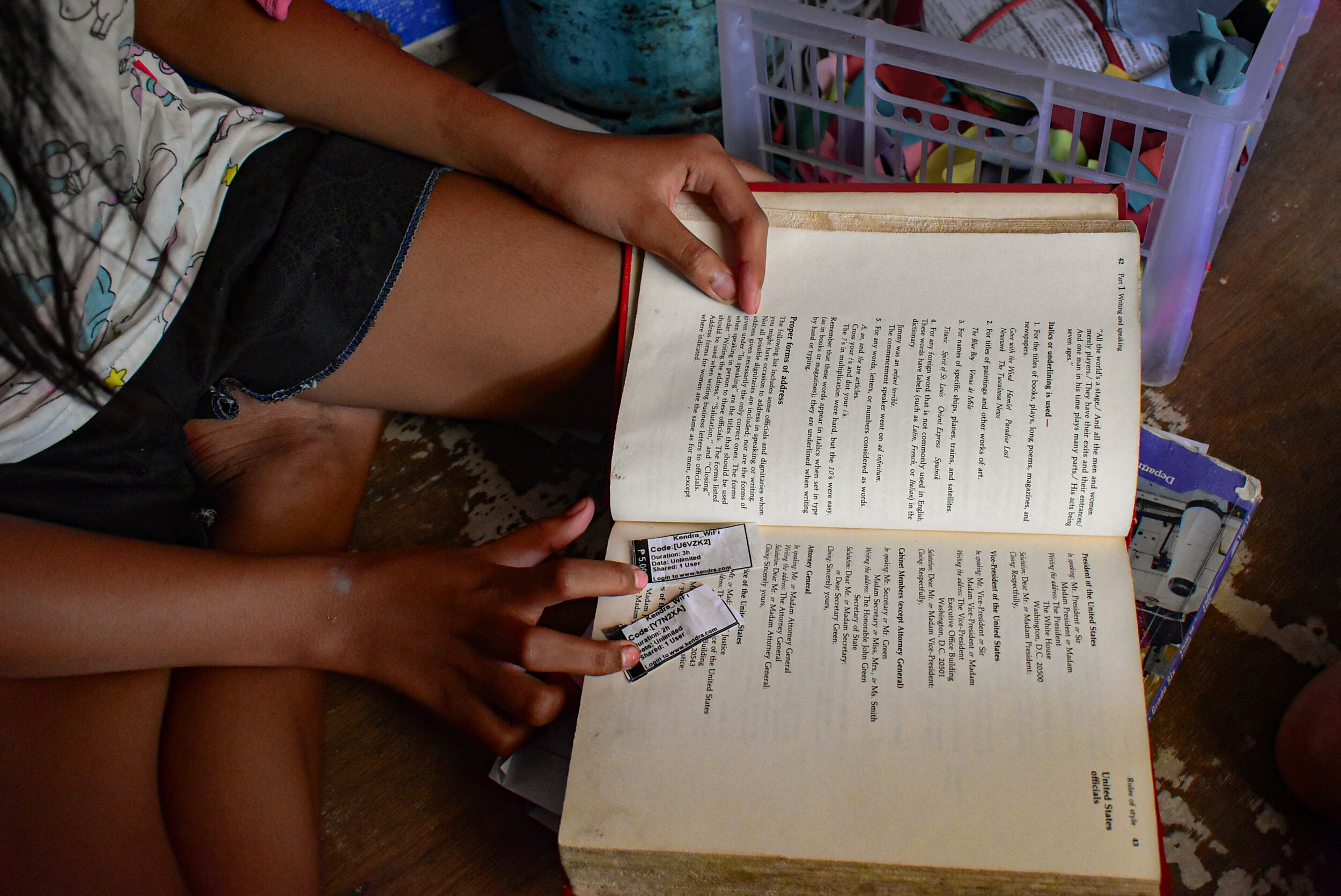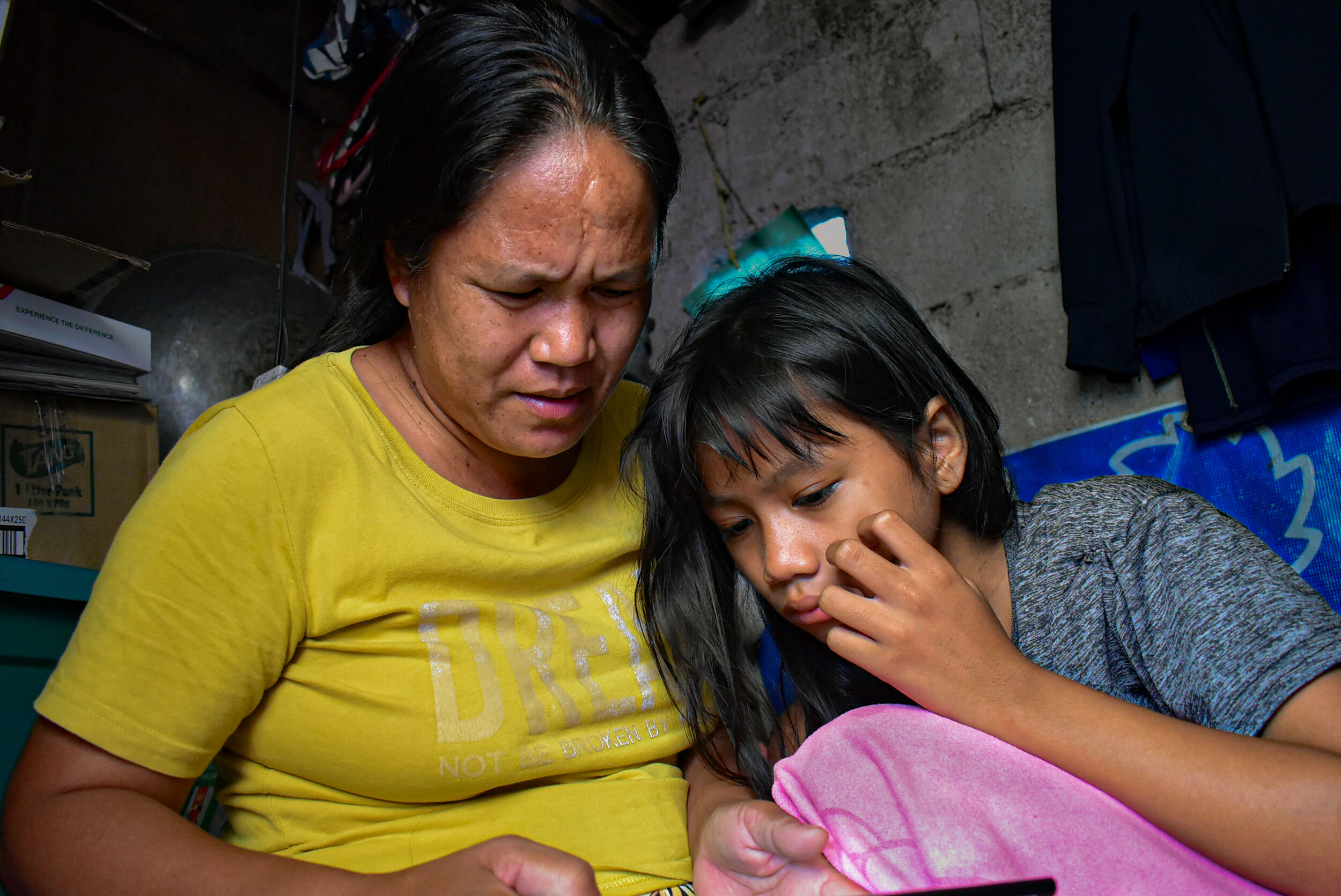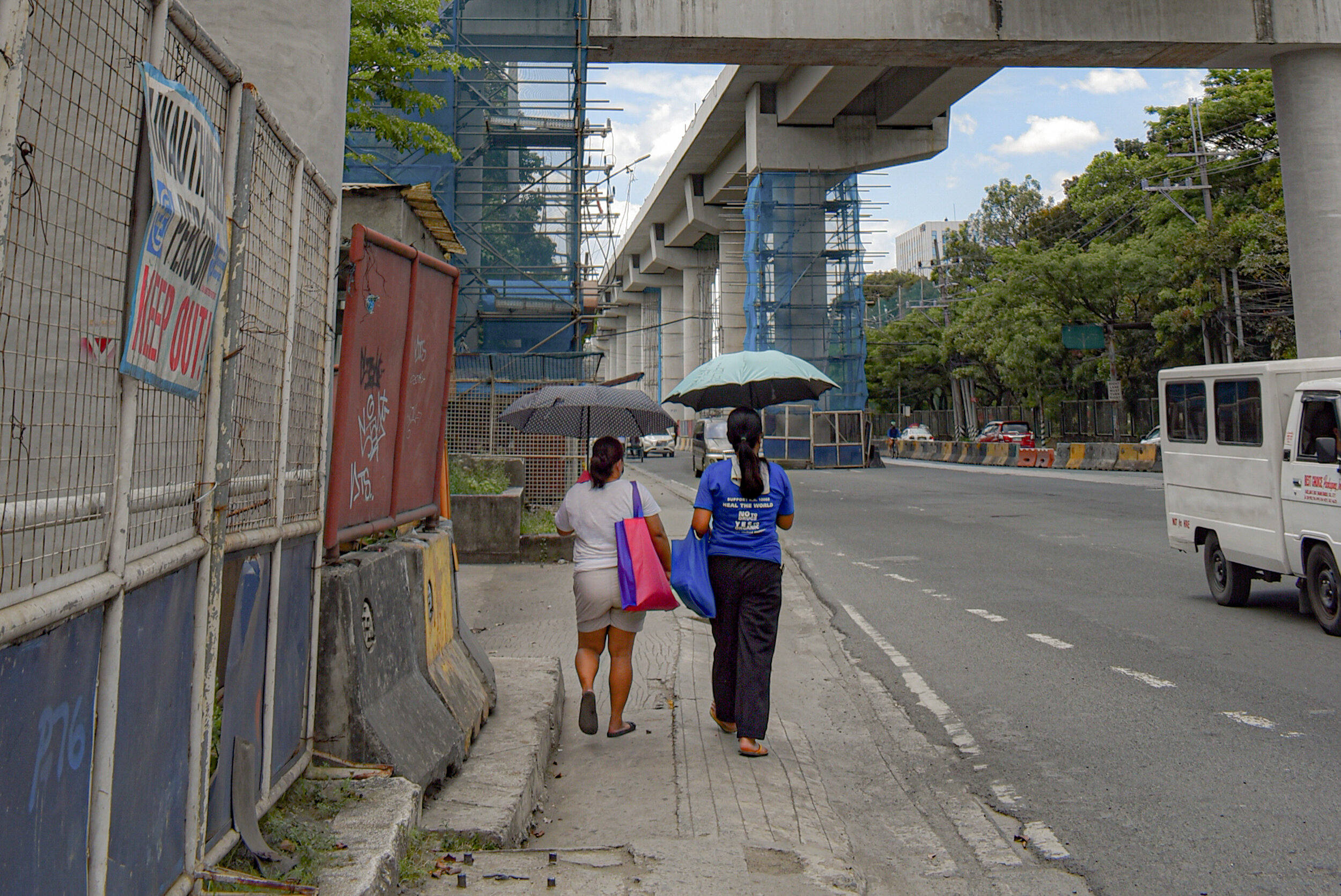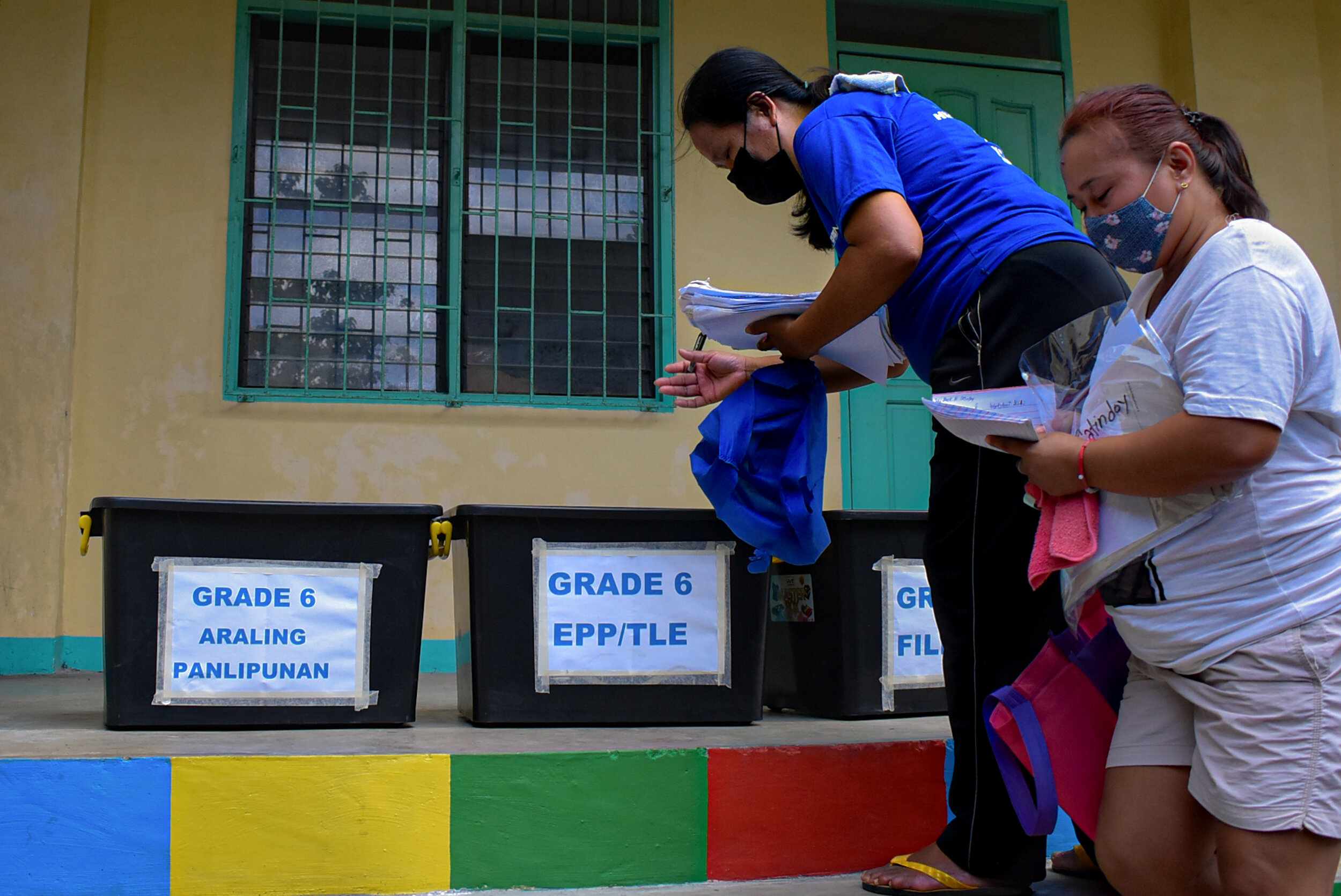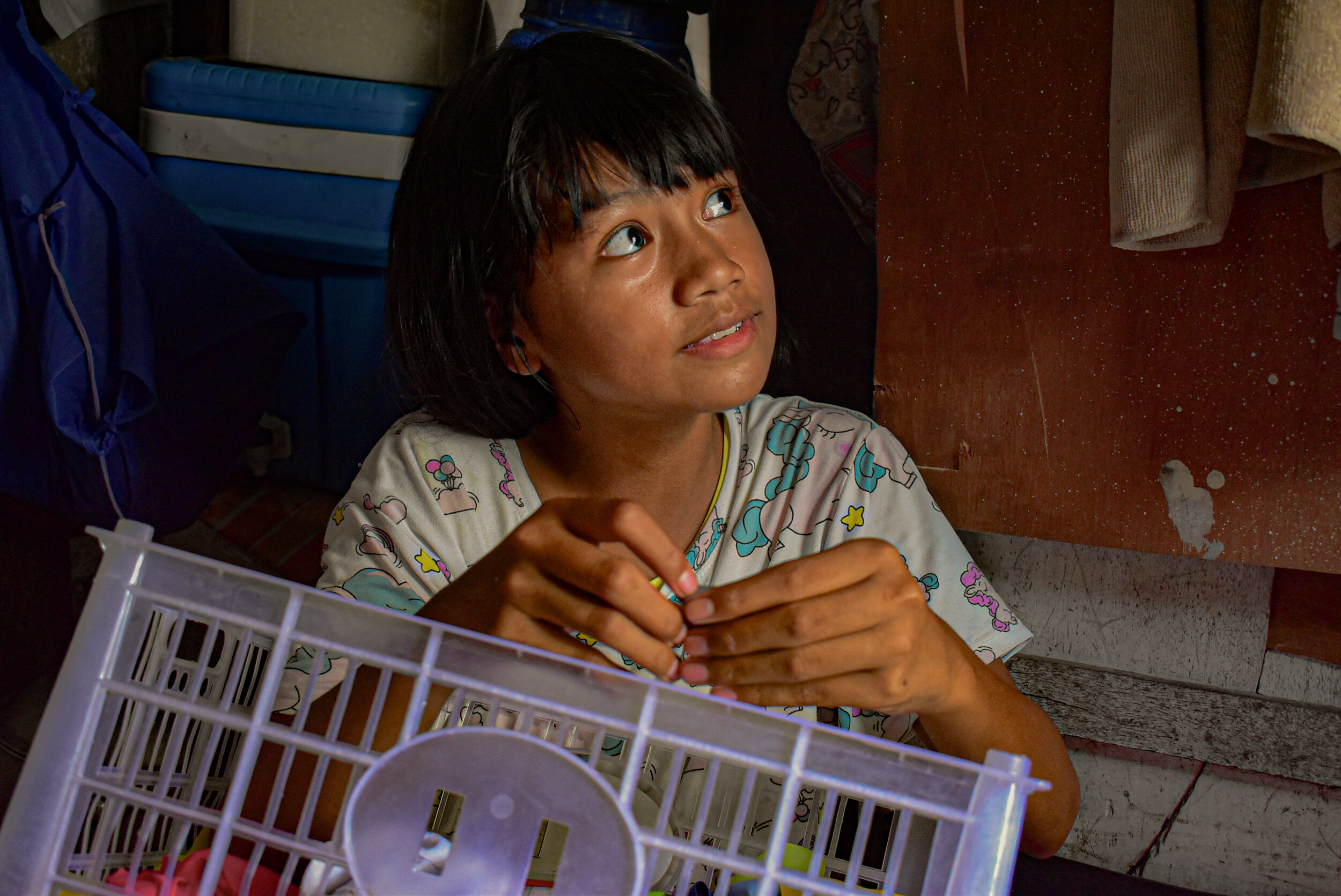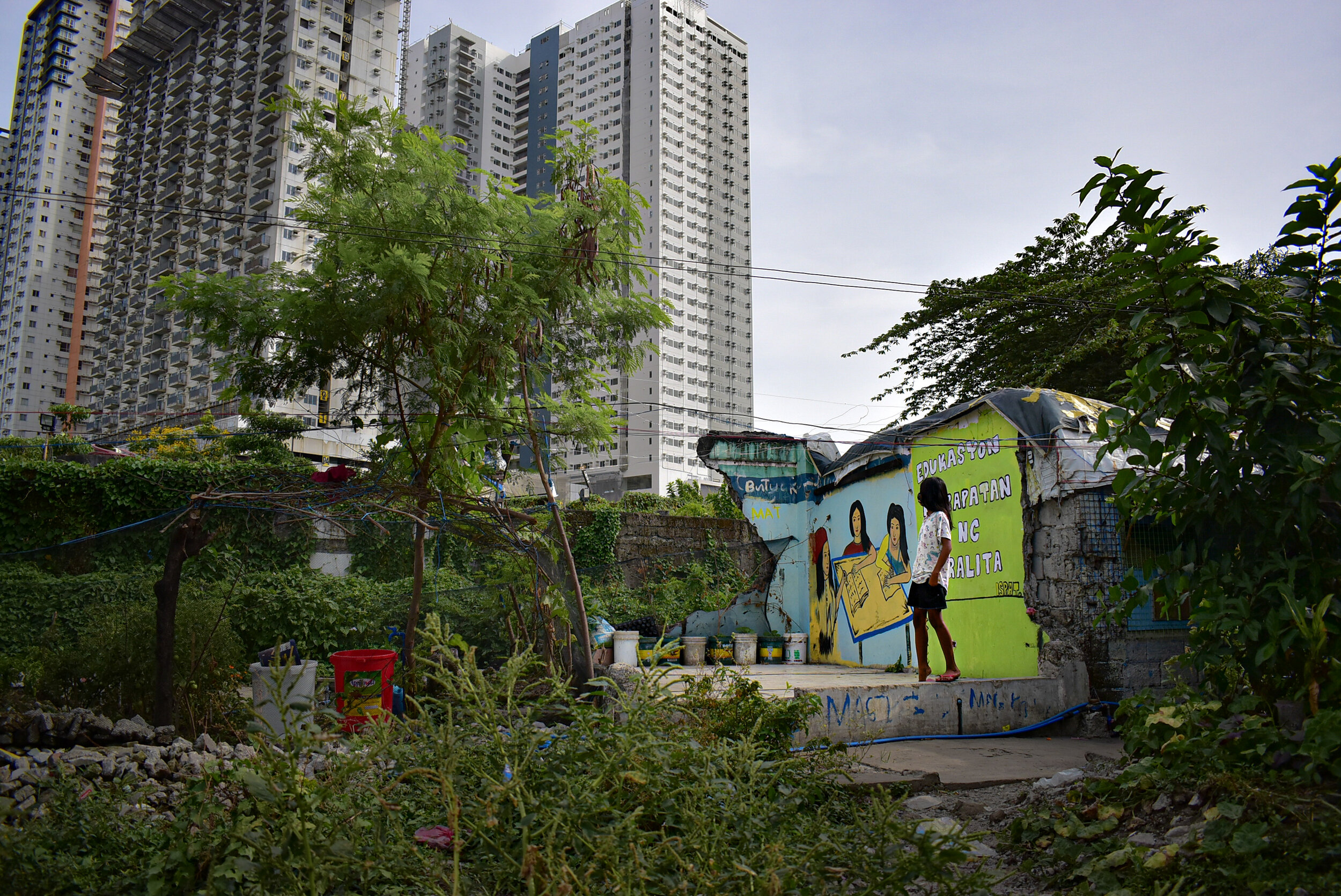Pinagtatagpi-tagpi: Mother, daughter come to grips with modular learning
PHOTOS AND TEXT BY
Gerimara Manuel
A year ago, Line Nalangan, 46 years old, lost her job due to the lockdowns imposed by the government in response to the COVID-19 pandemic. She used to work as a stay-in housekeeper in a firm under the Philippine Offshore Gaming Operations, more commonly known as POGO. She used to earn Php 8,000 per month but as soon as she was unemployed, they were also on the brink of homelessness.
Short of a stable source of income to pay for rent, Nalangan together with her partner Arnolfo and their daughter Ysa, a Grade 6 student, had to transfer in a makeshift single quarter - with a measly area of less than 1 and a half square meters - in Sitio San Roque in Quezon City.
Jobless, Nalangan currently makes and sells rags to make ends meet. The family currently earns Php 200-360 per day for selling the rags every morning in Mindanao Avenue. Having just enough to survive the day, the family cannot afford to buy gadgets for Ysa to use for online distance learning, making them opt for modular learning – printed handouts for each subject are distributed for students to answer and submit anytime they can. Cheap internet connection in their barangay is unstable, making online classes inaccessible for them.
Instead of looking for a new full-time job, Nalangan decided to focus on assisting her daughter in answering her printed modules to continue her studies, in the fear of her daughter being left behind in the current blended learning arrangement implemented by the Department of Education (DepEd). She believes that her daughter will not understand the lessons effectively by herself.
The local government of Quezon City through the school initially offered tablets to students in the community, but they decided not to accept it after learning that recipients had to pay Php 6,000 in case the gadget gets damaged. Nalangan finds the arrangement a bit ridiculous as children, who will mainly use the gadgets, are by default, reckless.
Fortunately, Ysa was one of the few selected learners, only six students from their barangay, to receive a tablet from a private donor through DepEd. This helped Ysa connect to a nearby computer shop that provides a WiFi connection for 3 hours for 5 pesos. This allows her to check instructions from her teacher and do quick research on assignments on her class module. WiFi Signal, however, is often too weak that they cannot even open Google Classroom links or Facebook messenger chat groups. Unlike the traditional face-to-face learning, this time, students who chose to continue through modular learning are left to learn on their own without teachers to guide them with their studies. “Para lang siyang exam paper. Hindi namin alam saan kukunin ang sagot.” One time through an online message, her daughter asked her teacher directly how to answer a question in the module. Her teacher answered, “Hindi ko rin alam.”
Every day, Nalangan does her best to juggle making rags enough for them, to have something to eat, and to answer as many modules as possible to prevent them from piling up. She would get up as early as 6 am to make bundles of rags that they will sell the next morning. At 7 am, even without eating breakfast, she and Ysa will start answering modules until lunchtime. In the afternoon, they will both work on more rags until the evening to keep them afloat.
Despite the struggles in answering the module, sans prior knowledge on the subject, and figuring out how to feed themselves from day to day, Nalangan and her daughter are persistent in pushing through with completing Ysa’s education.
Nalangan’s experience mirrors many parents’ aspiration living in Sitio San Roque, an urban poor community facing threats of forced, voluntary, and incremental demolitions under the Quezon City Local Government's Quezon City Business District (QC-CBD) Project- a joint venture of the National Housing Authority (NHA) and Ayala Land, Inc. (ALI).
As a high school graduate, Line Nalangan has high hopes for her daughter’s education. “Para hindi ganito,” she said. Ysa wants to be an Information Technology expert. She believes that data and technology are the future.
This story is one of twelve photo essays produced during the Capturing Human Rights fellowship, a seminar and mentoring program jointly undertaken by the Philippine Center for Investigative Journalism and the Photojournalists' Center of the Philippines.


